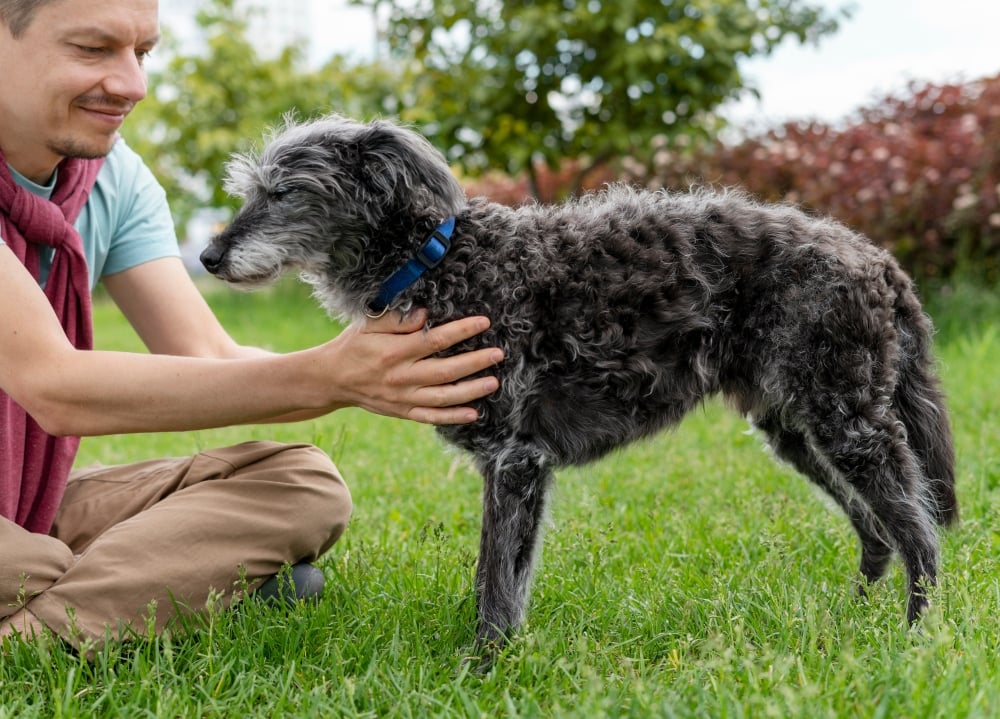Table of Contents
One of the hardest parts about loving a dog is the fact that they don’t live as long as we do. However, knowing how long your dog will live can help you prepare for his needs as he enters those senior years. Several factors influence how long your dog may live, but the main three are your dog’s size, breed, and health. The average lifespan across all dog breeds is about 10-13 years.
Which dog breeds live longer?
In general, small dogs live longer than large dog breeds, and it isn’t fully understood why. Some theorize that it could be due to the rapid growth that a large breed puppy experiences from birth to adulthood, which increases the likelihood of abnormal cell growth. The expected lifespan for large dog breeds is 8 to 12 years.
Small dogs can stretch their years a little further, with an average lifespan of 10 to 15 years. Some can even reach 18 years or more! Those seeking a long-term canine partner in crime should consider smaller dog breeds or one of these 10 dog breeds with long lifespans.
As you might have guessed, medium-sized dogs’ lifespans fall somewhere between that of large and small dogs. Their average lifespan is 10 to 13 years, with small variances depending on the breed.
Your dog’s health factors into their lifespan
Just like people, some dogs may be genetically predisposed to certain health conditions. When getting a puppy from a breeder, do your research to find one that practices responsible breeding and fulfills health test requirements for their breed. Even with responsible breeding, it’s important to know what health conditions your dog might face. Review the most common health conditions faced by small dog breeds as well as the common health conditions faced by large breeds to get an idea of what to watch for.
How to promote a long life
Taking a special interest in your dog’s health over the course of his life might help you buy some extra time with your canine pal. Follow these dog care tips to promote longevity:
- Feed a healthy diet: Make sure your dog eats a high-quality diet—keep the treats and table scraps to a minimum.
- Maintain a healthy weight: Being overweight puts your dog at risk of certain health conditions that can shorten his life. Many of these are easily preventable by keeping your dog at a healthy weight.
- Regular exercise: Keep your pup active and healthy by ensuring he gets adequate exercise every day. Your dog’s exercise needs will depend on its breed, age, and health.
- Tune into your dog’s behaviors and body language: Get to know what is normal for your dog so you can recognize abnormal behaviors or symptoms that could be signs of a health problem. Catching these early will ensure that your dog gets prompt veterinary care before a medical condition worsens.
- Visit the vet annually: Even if your dog is young and healthy and you’re well-tuned into his body language, your vet is an expert at catching the initial signs of medical issues that you may not be able to see. Regular checkups will help catch health problems early or give you peace of mind that everything is in tip-top shape.
- Reduce stress: Just like with people, stress can have negative effects on your dog’s health. Dogs are happiest with a predictable daily routine, time to bond with their people, and regular exercise.







